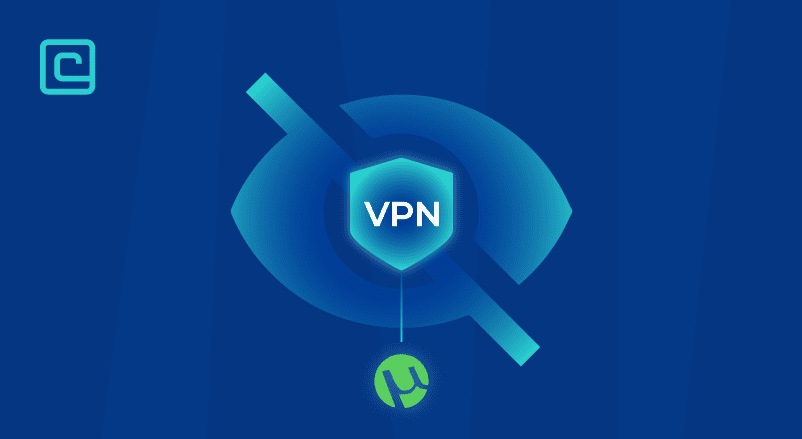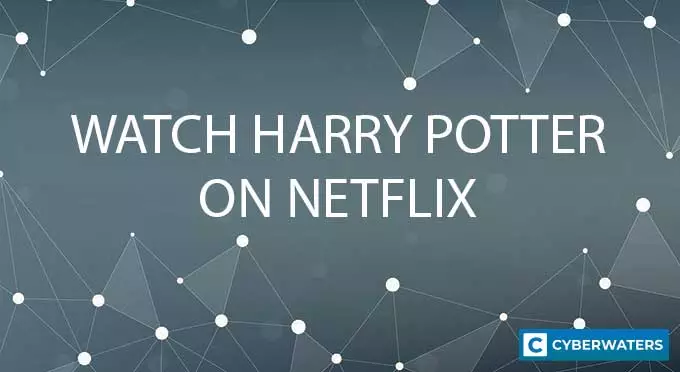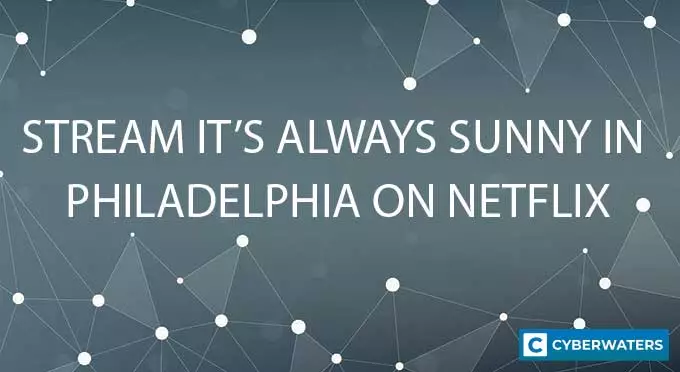How ISPs Know You’re Torrenting and How To Hide It

Torrenting music, movies, TV shows, and other content is still very popular worldwide, despite the rise of online streaming platforms. That said, this type of online activity is illegal in most countries worldwide. If you get caught torrenting copyrighted content, you’re risking huge fines and potentially even jail time.
What’s worrying about this is that your ISP (such as T-Mobile, Spectrum, or Verizon) can detect when you’re torrenting. With the help of the copyright holder, they can then notify the authorities with proof of illegal activity. Knowing this, can you use a tool like a VPN to hide torrenting from your ISP?
Yes, you can use a VPN to hide your torrenting activities from your ISP. And, in this article, we’ll clarify how your ISP can find out that you’re torrenting and what it can see when you torrent online content. More importantly, we’ll also share with you useful tips on how to torrent without your ISP knowing it.
How Does Your ISP Know You Are Torrenting?
Your ISP can tell whether or not you’re torrenting by inspecting your IP address and port number on your data packets. When doing so, if it notices that you have high bandwidth consumption, it will know that you’re downloading or uploading large files.
With this in mind, you might also wonder: “How does my ISP know what I download?”. The good news is that the ISP itself doesn’t detect and track precisely what you download. The bad news is that there’s still someone that does. This is the media company that holds the specific copyright of the torrent you’re downloading. This brings us to the next key part.
Test Your VPN Knowledge – Take A Quiz!
What Does Your ISP See When You’re Torrenting?
To put it in simple words, your ISP can see a lot of information when you’re torrenting. But, it can’t actually see the files that you’re downloading. This is where copyright holders come into play.
Many copyright holders closely monitor the torrent tracker server of the copyrighted material. They track all IP addresses that connect to it to download the copyrighted content. As you start downloading a file, you connect to a torrent tracker server.
This server ensures smooth communication of all peers that connect or disconnect from the torrent client. The torrent client you’re using doesn’t make any difference. Whether you’re downloading files using qBittorrent, uTorrent, or Vuze, the process is the same.
If you’re not using a VPN server or other tool to hide your real IP address, it will get shared with everyone who torrents the same content. As torrenting is a P2P (peer-to-peer) activity, everyone sharing the same file can see each other’s IP addresses. So, if a copyright holder is tactically waiting, it can collect the IPs of every user that downloads the file.
When you start torrenting one of their copyrighted material, the copyright holder will log your IP address. Then, they will reach out to your ISP and inform it of your activities. As your ISP has enough information to link your IP address to the data the copyright holder provided it with, it will know that you are indeed P2P file-sharing copyrighted content.
At this point, most ISPs would send you a letter notifying you about your copyright infringement actions. You might not get in any serious trouble the first time, but any other activities will draw more severe consequences. The results could range from getting your Internet terminated to paying a huge fine or even facing prison time.
Do ISPs Care About Torrenting?
In most cases, your ISP won’t care that you’re torrenting. This is because torrenting itself is not illegal in most countries. What can make it illegal depends on the type of content you’re torrenting.
For example, if you’re torrenting copyrighted games, you’re likely breaking the law in your country, as this is illegal in most places worldwide. In that case, the ISP might take further action to prevent you from using and distributing copyrighted content.
In some cases, the ISP might act without any third party if it notices you’re using a lot of bandwidth. In such situations, it can start throttling your bandwidth. This is when your ISP intentionally slows down your connection to manage how much data traffic you have in a certain period.
Considering this, your ISP might not really care about your torrenting. In most cases, it only acts on behalf of a copyright holder or an anti-piracy company. From this perspective, the ISP is just doing what the law requires and doesn’t have any interest in the process.
Does a VPN Hide Torrenting From The ISP?
A VPN hides your torrenting activities from your ISP by diverting your traffic and masking your real IP address. Your data is sent through the VPN’s encrypted tunnel. That way, no one, not even your ISP, can see what you’re doing when connected to a VPN server.
By running your data through the encrypted tunnel, a VPN hides several important aspects from your ISP. What’s more, the VPN essentially connects to the peer network on your behalf through one of its servers. This means that a copyright holder who monitors the torrent tracker server can’t see your real IP address. As a result, they can’t tell that it was you who downloaded or uploaded a particular file.
However, we should make one noteworthy distinction. While a VPN might mask your real IP address and online activities, it doesn’t hide the fact that you’re using a VPN. In other words, your ISP will know that you’re connected to a VPN and see that you’re transmitting large volumes of data. But, no one will know what is inside the data packets you’re uploading or downloading.
Considering that, this is more than enough for most users who like to torrent. As VPN use is legal in most countries, your Internet service provider won’t make any problems if it notices you’re connected to a VPN server.
To be more precise on exactly what data the provider can see from your VPN connection, ISPs see this data when you use a VPN. This is equally as important as knowing what a VPN hides. So, if you want to learn more details on everything that your VPN does for you when you’re torrenting, make sure to give it a read.
With some VPNs, you can trick the ISP so that it doesn’t even know that you’re connected to a VPN server. You can do so by connecting to obfuscated servers that hide the fact that you’re connected to a VPN server.
A big part of hiding torrenting activities from your ISP is using a VPN you can trust. A good rule of thumb is to pick a service that has a zero-logs policy. Moreover, the service should preferably be based in a privacy-friendly country. These two aspects ensure that the service won’t expose your data to authorities and doesn’t keep any logs of your torrenting activities.
How to Use a VPN To Hide Torrenting From Your ISP
While we don’t want to promote ways how to hide illegal downloads from your ISP, using a VPN is the best way to do it. That said, even if you decide to use a VPN to hide illegal torrents, be aware that there’s always a small chance of getting caught.
With that in mind, it also depends on the quality of the VPN you’re using for torrenting. If you have a capable VPN for torrenting with some advanced features, you’ll have a safer and more private experience.
- Sign up with a VPN
- Download the app for your device
- Install the app and log in
- Turn on Kill Switch feature
- Connect to a VPN server
- Start torrenting your favorite content!
Additionally, you should have your VPN kill switch enabled. This will protect your real IP address in case of any connection drops, as the kill switch will cut off your network to prevent any identifiable information from leaking.
You can also enable port forwarding in the VPN app if your service supports this feature. Port forwarding is especially useful for torrenting activities as it improves torrent download speeds and has a beneficial impact on seeding torrents.
Additional Ways to Hide Torrenting From ISP
VPNs are the preferred method (and the most efficient one at that) for staying private and obtaining great speeds when torrenting content. Still, they aren’t the only tool you can use to hide torrenting from your ISP. In this regard, here are a couple of alternative ways how you can hide your torrenting activities:
- Use a Proxy Server – a proxy server can also be a great way to hide your torrenting habits. However, you should be aware that proxy servers only keep you private. They don’t encrypt your information or come with security features like VPN apps.
- Use the Onion Router – the Onion Router (Tor Project) is one of the most popular tools for users who want to stay anonymous online. In this context, it also works for torrenting. Like other methods, the Onion Router keeps your IP address private but does have one drawback. It can’t deliver the same speeds as a VPN service or proxy server, and the connections are generally more unstable.
- Use a Seedbox – in simple terms, a seedbox is a remote server you can use for torrenting. The main benefit of using a seedbox is that you’re not directly downloading or uploading files with your device, so you’re not revealing your IP address.
Conclusion
Hopefully, this detailed article has helped you learn how to hide torrenting activities from your ISP. Keep in mind that it doesn’t matter if you’re downloading something legal or illegal, it’s always smart to hide torrenting from your ISP. Of course, if you’re downloading copyrighted content, the activity is still illegal, even if you’re protected with a VPN or other tool.
That said, the less information you can put online about you and your interests, the better. So, make sure to always use the VPN to keep your activities private. Moreover, a top-quality VPN for torrenting will protect all of your online activities and keep them far away from prying eyes.
Cybersecurity and VPN researcher

